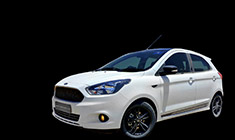News
Do physical auto expos even make sense anymore?
Only a handful of people visit a motor show. In the era of cost cutting, participating in a motor show just doesn't have a high enough return on investment for many manufacturers.

Automobile shows have been all the rage up until this last decade. Over the years, events like the Geneva Motor Show, Frankfurt Motor Show, Tokyo Motor Show and other prominent expos have seen the unveilings and launches of many vehicles. Concept cars have been displayed and reactions of people gauged, which gave manufacturers valuable inputs on shaping the vehicles of the future.

However, now, things are different. Developments have seen these shows losing their importance. For a start, these shows were from an era when print media used to rule. Magazines and newspapers used to cover them and publish reports and images for their readers. In the digital era, with the internet ruling, car manufacturers can easily disseminate videos, pics & data of any new car all over the world in a matter of seconds. There is no need to have all the press collected at one large convention to have everything covered.

Secondly, the costs involved for manufacturers to participate in such events are immense and there's a limit to how much a carmaker can invest in a show. Logistics, floor space, conferences, celebrity endorsements etc. all cost a bomb. For the money spent, the exposure the vehicle brands get is rather limited. Only a handful of people visit a motor show. In the era of cost cutting, participating in a motor show just doesn't have a high enough return on investment for many manufacturers.


Companies seem to have noticed this and after making an impact initially, they prefer to avoid participating. For instance, in 2020, big brands such as Honda, BMW, Toyota, Audi, Volkswagen, Ford, Fiat Chrysler Automobiles (FCA), Jaguar Land Rover, Hero MotoCorp, Bajaj, Honda two-wheelers, Royal Enfield, TVS Motors and Ashok Leyland among others skipped the Auto Expo.
At a motor show, carmakers hold press conferences and unveil a vehicle every 30-60 minutes. Therefore, each car that is unveiled, gets just about 30 minutes of fame. Press personnel rush from one pavilion to another after an unveil or launch. 45 minutes after the unveil, there will be no one at the pavilion. Some cars may not be returned to at all. To address the issue, many manufacturers now prefer to host their own private events a few days before the main expo. This way, they ensure that their cars get the undivided attention of the media.
For those looking to check out a car for the purpose of purchase, motor shows aren't a great option. They are held only in one or two cities in a country, which means people have to travel to these cities and in the process, spend on air travel and accommodation.

Such shows may be held outside the city and require long commutes. This makes the entire process of visiting such shows tedious, expensive and time consuming.

Further, the general-admission days at the show are a mess. There are big crowds and one can't get the time required to spend checking out a car he or she is interested in. Besides, many vehicles are kept locked. Therefore, it makes very little sense for those looking to buy a car to visit a motor show. It's advisable and convenient to visit a nearby showroom and get a good long look at a vehicle instead. A showroom will give you a test drive as well.

Enthusiasts too face the problems mentioned above. The huge crowds will be a big put-off. Besides, they may have to stand in a long queue to have just a brief look at the real crowd-pullers on display. That can be disheartening.

In European countries, vehicles and automobile products are less romanticized than they once were. This is because of rising concerns about climate change. People are making an effort to reduce their carbon footprint. With fewer people being attracted to the shows, manufacturers see no point in participating in them.

In 2015 the Frankfurt Motor Show saw 9,31,000 visitors. While in 2017, that number dropped to 8,10,000 people, and finally just 5,60,000 visitors in 2019. These figures clearly show the declining interest people have in motor shows.

As a result, all over the world, either car manufacturers are skipping motor shows or downsizing their pavilions significantly. These shows are outdated and in their twilight years. The outbreak of the COVID-19 pandemic will be one of the final nails in the coffin. Just last month, the organizers of the Tokyo Motor Show were forced to cancel this year's event. Many others are expected to follow suit. Potential car buyers are using the internet for vehicle information, while the lockdowns put in place around the world are turning more people towards online conferencing. Video conferences and webinars are becoming the new normal and carmakers have already taken advantage of this for their launch events.

Image source: Lulop
Back in 2018, Dr. Herbert Diess, Chairman of Volkswagen stated, "Motor shows are dead" at the Goodwood Festival of Speed. He went on to say, "They are a product of the 1960s and they are not as relevant anymore. They’re not delivering what we want and they’re not delivering what car buyers want." He believes that there may not be a future for traditional motor shows, with events like the Goodwood Festival of Speed and off-site stand-alone exhibitions taking their place.
Check out BHPian comments for more insights and information.
- Tags:
- Indian
- Member Content
- Other
- Motor Show







_0.jpg)





.jpg)





